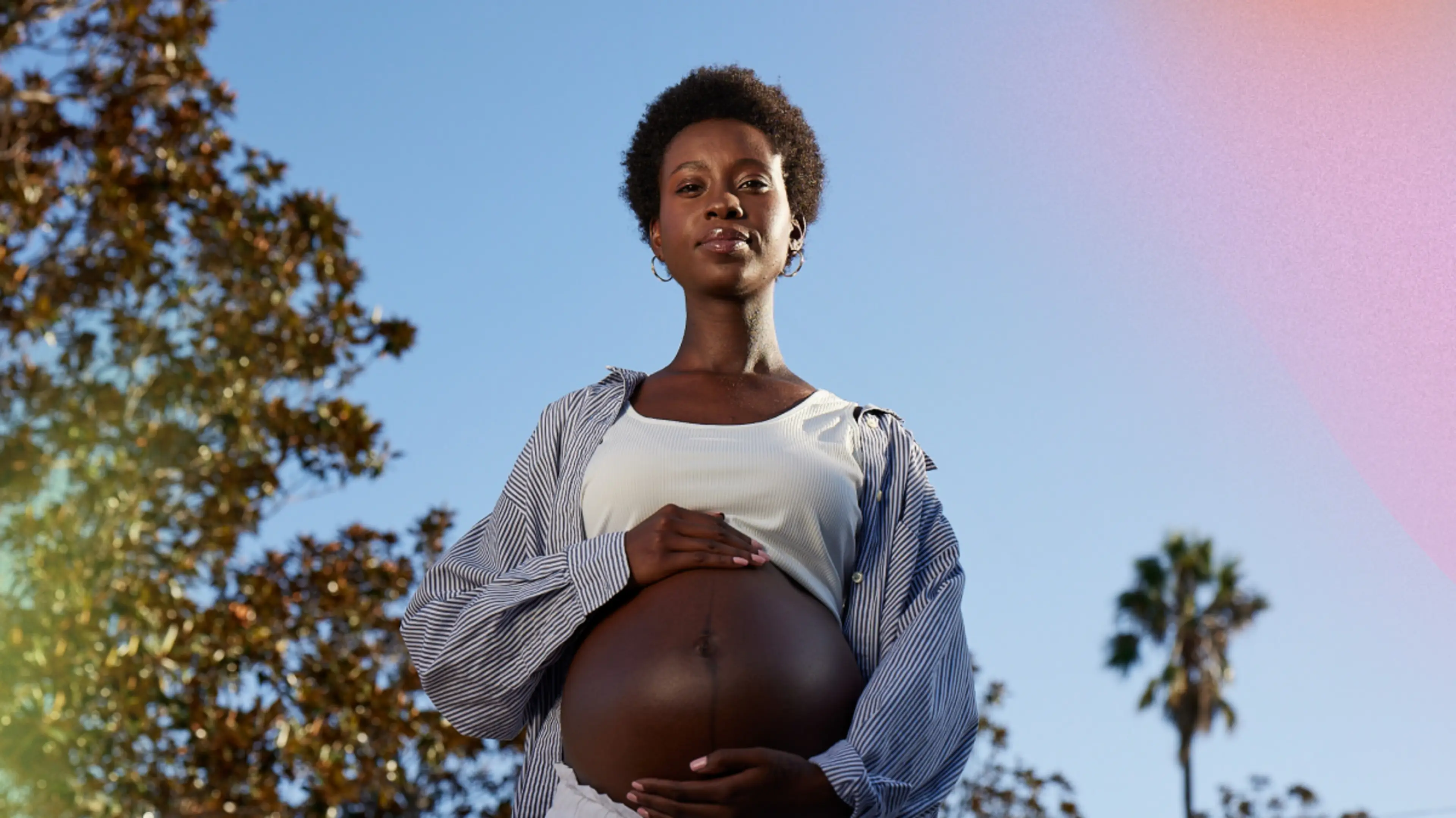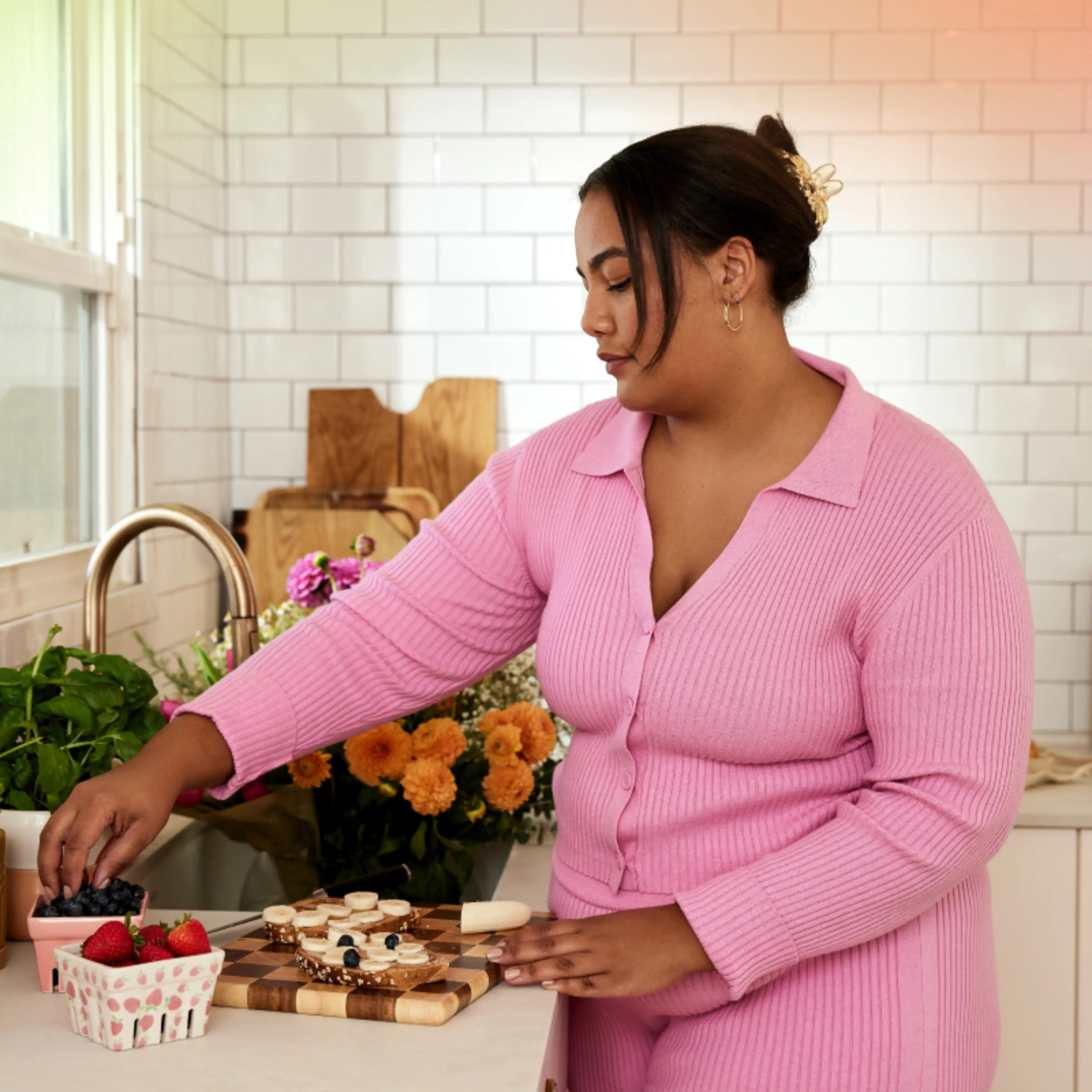Starting a family is a huge life change, and deciding exactly when to try for kids is rife with considerations. There’s your to-do list of accomplishments to achieve that always seems to be growing—a loving partner, the perfect house, a chunk of savings, and that big work promotion—and then the concerns about what’s going on in the world (if inflation would just get a little bit lower taking this step would be easier, right?).
There’s a line between preparation and winging it, especially when waiting to achieve every goal can mean that the “right time” never comes. But how do you figure out where that line sits for you?
“Millennial women are entering phases of their lives where they are achieving some of the stereotypical milestones that society associates with being ready for parenthood,” says Jessica Byrd1 , a therapist who specializes in women’s mental health. “I tend to see that millennial women assume once they've reached this place where they've ‘checked all the boxes’ they will be in a place in their lives where they feel like they're ready to become mothers. However, that isn't always the case,” Byrd says.
Farah Faye, a Brooklyn-based writer, struggled with this firsthand. “At first, our threshold to have kids was after we got married, which was delayed because we both got new jobs and moved to Brooklyn in 2021. But now that we are married, I am still struggling to decide when the right time would be,” Faye says.
The timeline for having a child used to be simple: get married, and then have a baby. Marriage rates2 peaked in the late 1940s when the average age for women to get hitched was in their early 20s, with a similar timeline for the birth of their first child3 . But the world—and expectations—are changing, and women are getting married and starting families later4 , with the median age of first child climbing to 30 and birth rates5 dropping overall. Even getting married is no longer a societal requisite for having a child, and the number of women who are having kids without a marriage license or a partner is rising.
“Overall, [the decision to] hold off on having babies centers on marrying older, finishing education or going on for more advanced degrees, waiting until one feels financially able to afford a child, wanting to be in a secure or defined point in one’s career or job,” says Susan Newman6 , social psychologist and author of several books. These are meaningful goals, especially given the pressure women are under to have-it-all. But at the same time, obstacles beget obstacles, and there’s no guarantee that meeting any one of these objectives will suddenly spur the confidence to finally start a family.
Given all these concerns, is there really a right time? Will you ever feel like you’ve checked off all of the boxes and are 100% ready for motherhood?
For many women who want to become pregnant at some point, fertility concerns loom above it all, putting pressure on them to make a decision before it might be too late. Cyrena Lee decided to have a baby at 33, encouraged by watching older female friends go through fertility treatments in order to conceive. “I remember being in my late twenties and witnessing my older colleagues (slightly older, early 30s) go through IVF. At the time I kind of shrugged it off, but the older I got, the more it seemed that women around me were fretting about getting pregnant, infertility, or freezing their eggs,” Lee says.
For those who do wish to wait, IVF and other fertility treatments can lengthen the childbearing years. “It is wise for younger women to educate themselves about their egg production as they get older, egg freezing, and the costs—both emotional and financial (which can be prohibitive)—of treating infertility.” Newman says. Knowing the toll these fertility treatments can take, Lee decided not to take any chances. “Egg freezing, as well as IVF, is expensive and invasive, so I have never ever considered doing that, and I guess part of my decision to have a kid sooner rather than later was to just make sure that natural conception was still a viable option,” Lee says.
“Now having had a child, I am happy to have done it when I did,” she says, while acknowledging that she doesn’t necessarily think it’s possible for there to be the perfect time in terms of life accomplishments or goals. “I do think I waited until the ‘right’ time in terms of being ready emotionally.”
But for women who are focusing on their careers, it can be hard to put a pause on job growth, especially early on, before rising to a financially stable salary or higher position.
“It is well-documented that having babies and being a mother is penalized in the workplace. Although ‘the motherhood penalty’ differs in different occupations, in the professions such as medical or legal, the percentage is significant,” Newman explains. Having a child can not only slow down a woman's advancement but also result in a lower salary.
While temporarily shifting focus from career to motherhood might be required after having a baby, it doesn’t mean that the two can’t go hand-in-hand. For women who want the best of both worlds, some research7 shows that waiting until after 30 can help lessen that so-called motherhood penalty and reduce the amount of salary lost over time.
Faye understands this complicated relationship between having a child and a career and doesn’t yet feel she’s in a place to compromise. “No matter what I choose to do, being pregnant [and] having a child will have to take priority over my career and will irreparably affect it afterward. I know that once I do have a child, I will want the freedom to pour my energy into that—and the job I have currently will not allow for that type of space,” she says.
“I am simply not willing, at this point, to put my career on hold—and I often find myself feeling resentful that I will need to,” Faye says.
Of course, some concerns feel way out of our control, like the rising temperature of the Earth or the inability to find affordable housing or the stripping away of women's healthcare or a lack of parent-friendly policies. For some, it can feel almost irresponsible to willingly bring another human into the world, especially one whom you never want to see suffer. This concern is shared by Gen-Z and millennials alike, with 37% and 34% respectively saying climate change8 was a reason for their decision not to have children.
“We can’t escape the reality that rising costs of living, climate change, and difficulties accessing healthcare are going to impact what it looks like to raise children,” Byrd says. “Instead of trying to minimize or invalidate these concerns, I encourage clients to acknowledge that these concerns are very real and will be a part of how they make this decision.”
“I never wanted to have kids for reasons both personal and external but wound up having a son at 40,” says Samantha Vincenty, an editor and writer. For her, meeting the right person and accepting that there would never be a perfect time encouraged her and her partner to take the leap. “I'd also realized that while our world is terrifying, people in turbulent times throughout history still find a reason to shake off the doomerism and breed. So my advice is, circumstances will always change and the world will always skew toward 'bad' so focus on how strong the support system around you is and how deeply you want it, and base your decision on the latter two,” said Vincenty.
Despite her initial hesitations, Vicenty says she’s glad she took the leap when she did.“I feel extremely lucky to have a healthy, hilarious, thoughtful 4 year old. He really does make my day joyful in a way that makes it all worth it despite the stress and enormous expense. I don't know, maybe that's the powerful parenting brain chemicals at work, but I can't imagine my life without him in it now,” she shares.
If you’re waiting for the right time, waiting to reach certain goals, or just waiting for the world to change, remember that for most women, there is no perfect time to have children. “Women often get this message that they will know when it's the ‘right’ time or reach a point when things feel ‘right’. The reality is that there isn't a ‘right’ time or answer that's going to work for everyone. What's more important is a sense of clarity about what you want for your future and the future of your family,” Byrd says.
It’s smart to make some preparations and plan for the future, but it’s not the only thing to think about. “Wait for a bit, consider your age in terms of fertility, but also think about who or what may be influencing you one way or another: what your friends may be doing, your childhood memories of growing up, or cultural expectations. We like to believe we think alone, but we are likely being influenced by our histories and others in our lives,” Newman says.
Regardless, it’s not an easy decision to make, and one that Faye struggles with despite how she may feel towards motherhood. “Of course, I want to have a child. All those mushy gushy feelings about becoming a parent, having a baby, experiencing pregnancy—they don't escape me. Sometimes I think, ‘Don't overthink it,’ but then immediately reject that because it's so important to think it through—almost like I want to think it through on behalf of all the people who don't think it through,” Faye says.
In the end, accepting the uncertainty and the unknown is all you can do. “Remind yourself as you grapple with your personal concerns that nothing is ever perfect. All the reasons you have for being ‘on the fence’ may not be resolved. Sometimes you just may want to ‘take the leap’ so you don’t miss the opportunity to have the child you always wanted. You can count on flip-flopping or feeling unsure…and that’s okay,” Newman says.
“The most important place to be in your life before having a baby is wanting a baby. Most women know when that is,” Newman says.
When it comes to my own decision, I repeat an anecdote I once heard on a podcast: there is always a reason not to have kids. My grandparents were born in the years surrounding World War II, and my parents during Vietnam. It’s easy to see the big problems in the world and think, “Now is not the right time.” And yet, here we are. Even when the puzzle is missing a few pieces, having kids despite it all seems like the biggest signifier of hope there is.











